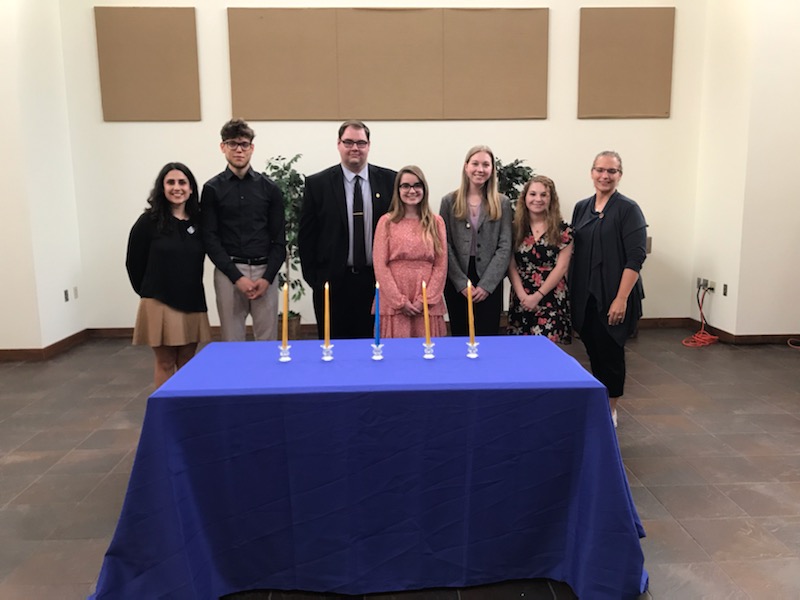A select group of Shippensburg University students were inducted into Alpha Phi Sigma, the National Criminal Justice Honor Society. The inductees included Alexis Clark, Megan Cottingham, Julia Ferreira, Mikayla Greech, Amel Hajdarevic, Hunter Piper, Bridget Sharkey, Morgan Shaughnessy, and Hunter Vanca.
The induction ceremony took place in the Cora I. Grove Spiritual Center, where inductees and their loves ones joined Criminal Justice faculty and staff to celebrate this outstanding recognition. At the ceremony, students shared a composition describing the most influential persons in their lives, as well as an inspirational quote.
Alpha Phi Sigma was founded in 1942 to promote academic excellence and leadership for college students pursuing a career in criminal justice. In 1976, the Academy of Criminal Justice Sciences recognized Alpha Phi Sigma as the Criminal Justice Honor Society. The society is accredited by the Association of College Honor Societies and has over 550 chapters throughout the United States and Canada, with over 90,000 members.
The chapter of Alpha Phi Sigma at Shippensburg University, Chapter Pi, was originally established in 1981. Throughout the country, Alpha Phi Sigma offers a special distinction in the criminal justice profession by following the ideals of academic excellence, leadership, service, and unity. To be eligible to join, students must have completed 45 credits hours and have a minimum GPA or 3.2 on a 4.0 scale in criminal justice related fields.
“We are very proud to celebrate these outstanding students who will be the future leaders in criminal justice professions. Now is the time for young generations to answer the call for human services and do it with honor and commitment,” said Dr. Arelys Madero, faculty advisor for Alpha Phi Sigma. “It was inspirational to hear the stories of how these students got to where they are now, to know about the influential persons in their lives.”
Shippensburg University offers a bachelor’s degree in Criminal Justice that prepares students for critical areas, including but not limited to law enforcement and criminal investigation, forensics, corrections, victim services, juvenile justice, and courts. The program is among a few programs nationwide certified by the Academy of Criminal Justice Science (ACJS), the largest professional organization of criminal justice practitioners and experts.

